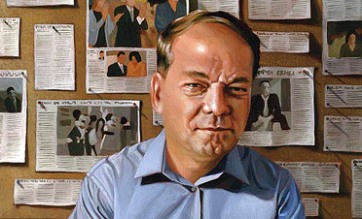“Most of you will be working in jobs one day that don’t exist right now.”
During my first day at St. Bonaventure, my professors told me this. It wasn’t until recently that I started to believe it.
The face of the media world looks much different now than it did decades ago. Newspapers no longer dominate it, and those who have worked in Journalism since then have watched the changes firsthand.
Jim Romenesko is one of them. He is mostly known for his media blog now, but spent the early years of his career as a newspaper reporter.
Romenesko said he blames most of the changes on technology.
“I think there’s a slow shift from print to digital,” he said. “Print newspaper circulations have been declining for decades and the pace will speed up as we become a society that relies more on mobile devices to get our news and information.”
He also mentioned how much advertising revenue has decreased for newspapers in recent years. Instead, advertising companies are choosing to go elsewhere.
“Newspapers are no longer the cash cows that they used to be, with 30 percent profit margins. Craigslist and other sites have killed their classified advertising business,” he said. “A full page advertisement on a newspaper’s website brings in only 10% of a full page ad in a print edition and fewer advertisers are paying for print ads.”
Romenesko said this could be part of the reason why so many newspaper jobs have been cut in the last decade.
“Newsroom staffs have to be downsized as revenue declines,” he said. “Many publishers refer to this as “right-sizing” rather than downsizing.”
Some newspapers companies are finding ways to save by cutting the unncessary jobs, or “luxury jobs”, Romenesko said.
Newspapers are cutting what they consider “not-so-necessary jobs” so they can continue to pay decent salaries,” he said. “Those jobs include local film critics (replacing them with cheap syndicated columns) and staff cartoonists.”
Romenesko said it’s inevitable that media will evolve as technology changes and news outlets adapt to those changes. This includes cutting jobs, or changing to coincide with the rest of the world.
“So-called luxury jobs — the local architecture critic, for example — are being cut to save costs and keep reporting positions intact,” he said.
The media is changing, making what I was told on my first day of classes entirely true. Journalism is definitely different, but those working within it will evolve and adapt.
To see Jim’s blog, visit: http://www.jimromenesko.com
